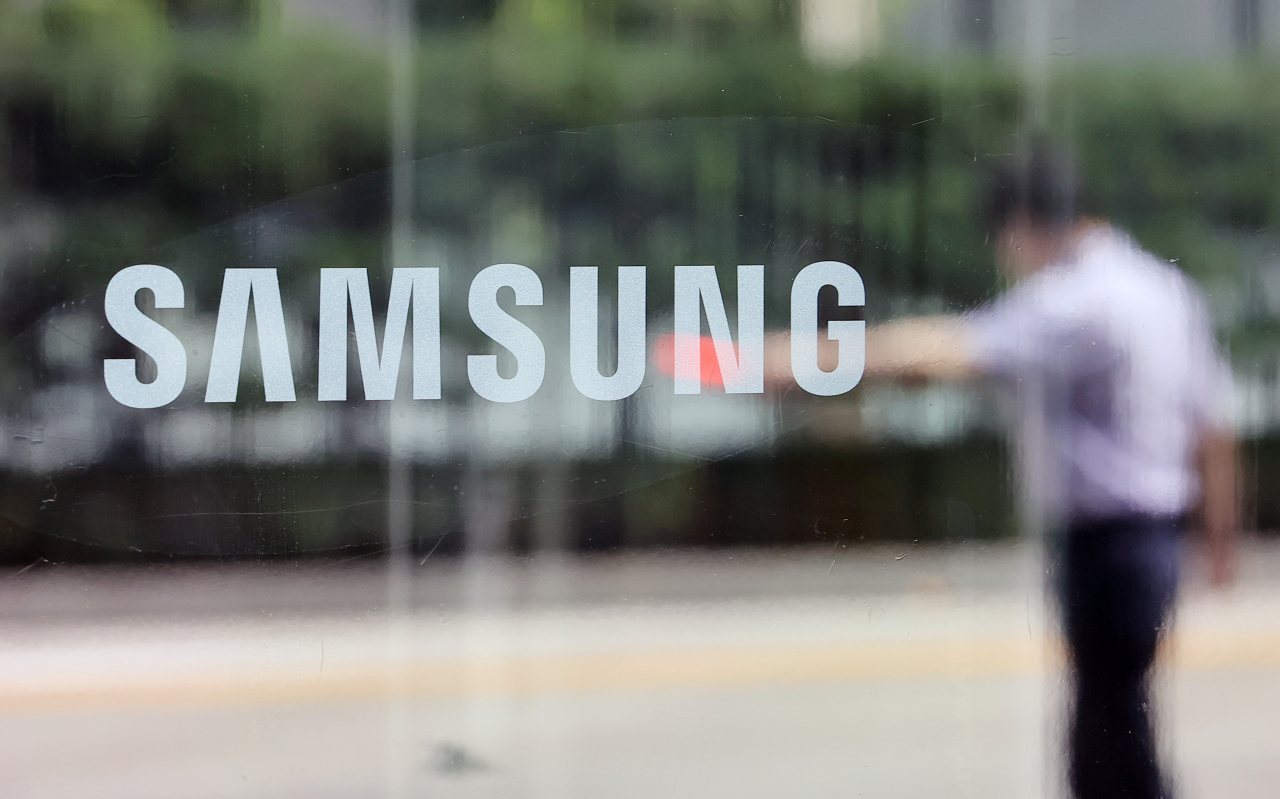Samsung likely to lose again to TSMC in chips revenue
Market watchers say S. Korean tech giant holds edge in foundry biz as TSMC's Arizona production is put on hold
By Jie Ye-eunPublished : July 23, 2023 - 15:45

Samsung Electronics, the world's largest memory chip maker, appears to be lagging behind its rival Taiwan Semiconductor Manufacturing Corp. in terms of revenue from its global semiconductor business for four quarters in a row amid a protracted slump in the global economy.
According to industry sources on Sunday, TSMC’s second-quarter revenue slipped 10 percent on-year to $15.53 billion. It slightly beat market expectations, but failed to avoid the impact of a chip recession caused by lackluster demand for smartphones and other devices.
While Samsung Electronics announced its earnings guidance for the second quarter earlier this month, it did not provide the results of each business division. But market watchers expected that the company’s chip business division, Device Solutions, to log around $10.1 billion - $10.8 billion in sales, almost half of last year’s $22.1 billion.
The Korean tech giant predicted an operating profit of $466 million for the April-June period, falling 22.3 percent from the previous year.
If the second-quarter performance of Samsung’s DS division meets the market’s forecast, the world's largest memory chip maker will lose the top chip spot to the Taiwanese foundry leader for four consecutive quarters since the third quarter of last year.
Samsung outstripped Intel to become the world's No. 1 chipmaker by revenue in 2021, reclaiming the top spot for the first time in three years thanks to a memory chip sales boom. But a sharp deterioration in memory business conditions caused the division to be put on the back burner from the last third quarter.
TSMC raked in $19.5 billion in sales, outpacing Samsung’s DS division’s sales of $17.8 billion in the third quarter of last year. In the fourth quarter, the Taiwanese firm and the Korean tech giant posted $19.9 billion and $15.6 billion, respectively, and their sales gap further widened in the first quarter as TSMC logged $16.2 billion and Samsung marked $10.6 billion.
TSMC forecast its third-quarter revenue to be between $16.7 billion and $17.5 billion. While experts forecast Samsung will likely hasten its earnings recovery from the third quarter led by chip production cuts, the company’s estimated sales of 15 to 16 trillion won is still much lower than that of TSMC.
Although the Taiwanese chipmaker will likely maintain its No. 1 position in the global chip market throughout the year, it is expected to face a bleak outlook due to weak global demand and a shortage of skilled workers, an anonymous industry source told The Korea Herald.
Memory chip makers supply products they have made in advance to the market and have a large inventory burden. On the other hand, foundry chipmakers only produce the amount ordered, and are relatively less affected by economic conditions. With persistent economic downturns and a slowdown in demand, clouds are looming over foundry players, the source added.
Primarily due to a shortage of technical workers with critical expertise in the US, TSMC pushed back the start of mass production at its plant in Arizona to 2025. Some market watchers said the world's top foundry operator’s delay in opening its US plant would be an opportunity for Samsung. The world’s No. 1 memory chipmaker’s foundry plant in Taylor, Texas, is expected to start operation in the latter half of next year.
Kyung Kye-hyun, co-CEO at Samsung Electronics who is in charge of the tech giant's chip business, recently posted an update about the Taylor plant under construction on his social media. “Four-nano semiconductors will be mass-produced here at the end of next year," he wrote.
Some industry sources highlighted that securing labor for the new factory is also an important task for Samsung. However, since it has already been operating a plant in Austin for about 30 years, it has an edge over TSMC.
“It can be an opportunity (for Samsung) to expand orders from global foundry customers such as Qualcomm, Nvidia and Apple there, while the operation of the TSMC plant has been delayed,” the source told The Herald.








![[LLG] Unseen inheritance: Trauma of transnational adoption 'trickles down' to adoptees' children](http://res.heraldm.com/phpwas/restmb_idxmake.php?idx=644&simg=/content/image/2024/05/12/20240512050141_0.jpg&u=20240512163544)

![[KH Explains] Hyundai Motor’s plan for new landmark keeps hitting bumps](http://res.heraldm.com/phpwas/restmb_idxmake.php?idx=644&simg=/content/image/2024/05/13/20240513050626_0.jpg&u=20240513192803)








